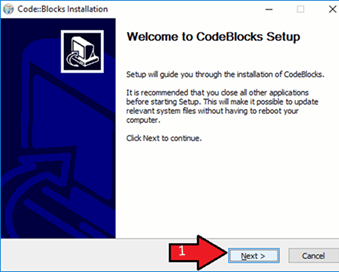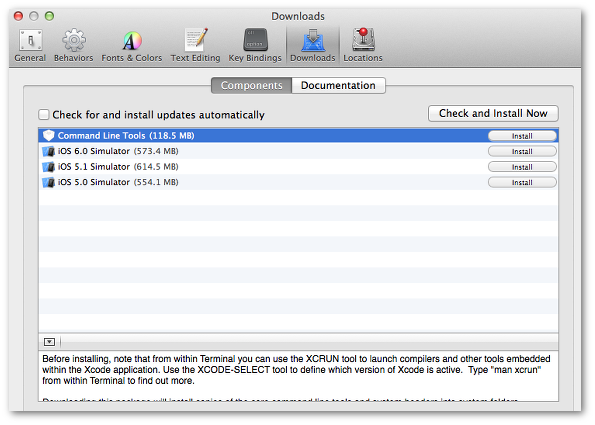gfortran for Mac
DISCLAIMER: I provide this information here to aid my memory and in thehope that others will find it a useful resource based on my experiences of installing a gfortran compiler on Macs. I am not a computer scientist orFortran guru and, as such, am unlikely to be able to help you with Fortran code,compilation or runtime problems.
There are several options available for installing gfortran for Mac OS X,other than installing from source code.
GCC Wiki
I currently choose to use the relevant gfortran installer (.dmg) packagesprovided through the GCC Wiki (opens in new window). Note that the files areinstalled in /usr/local system directories which require the administratorpassword.
How To Get The Gcc Compiler For Mac
- OSX GCC Installer Downloading and installing the massive Xcode installer is a huge hassle if you just want GCC and related tools. The osx-gcc-installer allows you to install the essential compilers from either pre-built binary packages or helps you create your own installer.
- GCC (GNU Compiler Collection) A Brief History and Introduction to GCC. The original GNU C Compiler (GCC) is developed by Richard Stallman, the founder of the GNU Project. Richard Stallman founded the GNU project in 1984 to create a complete Unix-like operating system as free software, to promote freedom and cooperation among computer users.
GCC, the GNU Compiler Collection. The GNU Compiler Collection includes front ends for C, C, Objective-C, Fortran, Ada, Go, and D, as well as libraries for these languages (libstdc.).GCC was originally written as the compiler for the GNU operating system.The GNU system was developed to be 100% free software, free in the sense that it respects the user's freedom. A guide to properly installing the latest version of Code Blocks on Mac OS with the GCC compiler and testing it with your first C program.
HPC
There are also various tar-files of gfortran distributions provided at the High PerformanceComputing web page. There are up-to-date distributions for some systems(only Mac OS X 10.7 (Lion), 10.8 (Mountain Lion), 10.9 (Mavericks) and 10.10(Yosemite) as of the last update of this page).
I recommend not to choose a package containing a version that is not a stable version accordingto the main GCC web site. Furthermore, for simplicity, I would recommendonly to install the relevant 'gfortran only' distributions.
The files are gzip'd tar-files which should be unpacked, for instance byusing the Terminal application, as follows:
sudo tar xvfz[tar-file] -C /
Note that the files are installed in /usr/local system directories whichrequire the administrator password.
The R Project
Previously, I had preferred to use the gfortran packages distributed inassociation with the R Project. These can be found in the 'Apple Xcode gcc-42add-ons' section of their Tools web page (opens in new window) or via the direct linksbelow. These gfortran packages and updates are specifically built to matchApple's own gcc builds. This does mean that the version is back at GCC 4.2,which is undoubtedly where it will stay since GCC changed their licensing andApple has stopped updating their GCC distribution with Xcode. Nonetheless, myexperience shows that this distribution is one that always works.
There are several packages relevant to particular Mac OS X and Xcodeinstallations. Run gcc-v to find out which Apple gcc build is currently installed as part of theXcode tools.
- Mac OS X 10.7 (Lion) and 10.8 (Mountain Lion):
One may need to apply a link after installing one of these packages so 'gfortran' may be used as a command, e.g.
sudo ln -s /usr/bin/gfortran-4.2 /usr/bin/gfortran
Otherwise, simply use the explicit command 'gfortran-4.2'.
- Mac OS X 10.6 (Snow Leopard):
- Mac OS X 10.5 (Leopard):
The files for builds 5564 and 5566 are gzip'd tar-files which should beunpacked, for instance by using the Terminal application, as follows:
sudo tar xvfz[tar-file] -C /
Note that the files are installed in /usr system directories which requirethe administrator password.

Packages for older OS X and Xcode versions are also available on the pagelinked to above.
Compatibility and uninstalling
Gcc Compiler For Mac Os Download
Note that each of these distributions has different associated libraries andother installed files which may conflict with or be wholly or partiallyoverwritten by one another. It is therefore advisable to ensure that you haveonly one distribution installed at any one time.

It is straightforward to uninstall the GCC Wiki distribution and instructionsare provided on the detailed instructions web page. Simply run the command:
sudo rm -r/usr/local/gfortran /usr/local/bin/gfortran
It is slightly more difficult to uninstall the R Project or HPC distribution. HPC distributes gfortran as a tar-file. Therefore each file contained in thetar-file should be removed. The easiest way to do this is probably to run thecommand:
Gcc Compiler For Mac Os X Free Download
For sh/bash:
for file in $(tar tfz[tar-file]); do sudo rm -f /$file; done
For csh/tcsh:
foreach file ( `tar tfz[tar-file]` )
sudo rm -f /$file
end
where [tar-file] is the package, for example gfortran-4.7-bin.tar.gz,gfortran-lion.tar.gz, gfortran-snwleo-intel-bin.tar.gz, etc. This will removeall files but not directories, which may contain other files that are not to be removed. To remove empty directories only, then run the command:
Gcc Compiler For Mac

For sh/bash:
for file in $(tar tfz[tar-file]); do sudo rmdir -p /$file; done
For csh/tcsh:
foreach file ( `tar tfz[tar-file]` )
sudo rmdir -p /$file
end
The R Project distribution is a .pkg file and this adds another level ofcomplication. To list the files that were installed from this package, oneneeds to locate the 'receipt', which is a .bom file. On my system (Mac OS X10.8, Mountain Lion) the file is located at/private/var/db/receipts/org.r-project.gcc-42.darwin11.pkg.bom (was/private/var/db/receipts/org.r-project.gnuFortran42.lion.usr.pkg.bom for Mac OSX 10.7, Lion; or /private/var/db/receipts/org.r-project.mac.tools.gfortran.bom for Mac OS X 10.6, Snow Leopard). To find the file, run a command such as:
sudo find / -iname'*fortran*.bom'
Once the appropriate file has been located, a list of files that have beeninstalled can be found by running the command:
lsbom -pF [bom-file]
Therefore, similarly to removing the HPC distribution, the files can beremoved by running commands such as:
Gcc Compiler For Mac Os X
For sh/bash:
for file in $(lsbom -pF[bom-file]); do sudo rm -f $file; done
for file in $(lsbom -pF[bom-file]); do sudo rmdir -p $file; done
Gcc Compiler For Mac Catalina
For csh/tcsh:
foreach file ( `lsbom-pF [bom-file]` )
sudo rm -f $file
end
foreach file ( `lsbom-pF [bom-file]` )
sudo rmdir -p $file
end
Note that these commands should be run from the root directory (
Last updated: 2020-09-02, M.Floyd (MIT)
Accessibility
